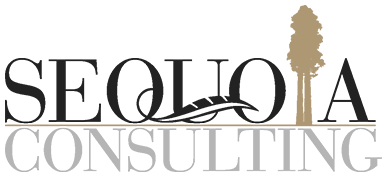1. Lump-sum taxation as way to get Swiss residence permit without gainful activity
In most cantons of Switzerland foreigners wishing to immigrate in Switzerland can get Swiss residence through a lump-sum taxation regime (also called expenditure-based taxation). The general rules are regulated by the Federal Government and are uniform throughout Switzerland, although the assessment basis can vary from canton to canton. Less than 0.1% of taxpayers are taxed on a lump-sum basis in Switzerland. The highest number of taxpayers in this category resides in the canton of Vaud, followed by Valais and Ticino. Cantons where lump-sum taxation has been abolished: Zurich, Appenzell Outer-Rhodes, Schaffhouse, Basel-Country and Basel-City. The cantons of Thurgovia, St. Gall, Lucerne and Berne are applying stricter rules.
Conditions
Foreigners can benefit from lump-sum taxation if they are:
- not Swiss citizens
- taking up Swiss residence for the first time or after living outside Switzerland at least 10 years
- are not carrying out any gainful activity in Switzerland
In the case of married spouses, both must meet these conditions. According to current legislation, gainful employment abroad is compatible with asset management in Switzerland.
Duration
Taxpayers can benefit from lump-sum taxation for an unlimited period until the applicable conditions are met. As soon as a taxpayer acquires Swiss nationality or takes up gainful employment or self-employment in Switzerland, his right for lump-sum taxation expires. Persons who were taxed on a lump-sum taxation basis prior to January, 1, 2016, can continue to be taxed according to the old legislation for a maximum period of five years. After December 31, 2020 the current legal provisions also apply to these taxpayers.
Assessment Basis
Expenditure-based taxation is a special way of assessing income and wealth that replaces standard taxes on income and wealth. In principle it is calculated on the basis of the total annual living cost during the assessment period expended by the taxpayers in Switzerland and abroad for themselves and their dependents living in Switzerland. However, since January 1, 2016, the following legislative amendments came into force:
- the worldwide expenses should amount at least seven times the taxpayer’s annual rent or annual deemed rental value (for taxpayers with their own household); for taxpayers without their own household (for example, if the persons lives in a hotel or in a pension): three times the annual full-board price for food and hosing in the place where he is staying.
- A minimum of CHF 400’000 for direct Federal tax (cantons are free to set in their legislation, at their discretion, a minimum cantonal assessment basis). In canton Ticino for non-EU/EFTA citizens: CHF 750’000.-
Control Calculation
The law also requires an additional control calculation, according to which the amount of taxes due on the basis of the lump-sum assessment must not be lower than the taxes calculated on the basis of the following gross elements of income and wealth that would be charged to the tax payers according to the ordinary tax regime in Switzerland:
- Income from real estate assets located in Switzerland
- Income of movable property located in Switzerland
- Income from copyright, patents, licenses and similar rights undertaken in Switzerland
- Income from Swiss bank accounts (interest)
- Income from Swiss investments (dividends and interest)
- Income from precious metals in Switzerland
- Income from retirement pensions, annuities and other pensions from Swiss sources
- Income from foreign sources: income for which the tax payer requires full or partial relief from foreign taxes based on-double taxation agreement between Switzerland and the country where taxes are levied
Only the following deductions may be made from these gross amounts:
- The costs of maintaining and managing immovable property located in Switzerland
- The costs of the normal management of securities and assets, the income from which is taxed

